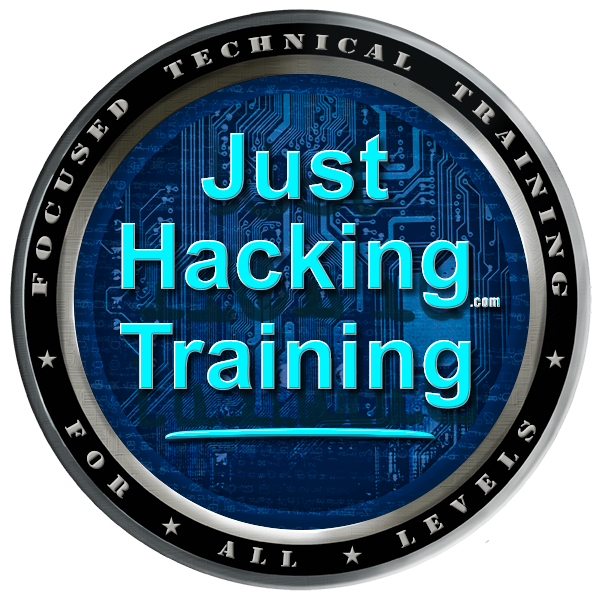This may seem a bit odd coming from a site dedicated to teaching deep technical topics to skilled practitioners. Then again, I am a former mindfulness coach and yoga instructor turned pentester, so go with it! I’d like to take you on a quick journey away from the familiar confines of the chair confidently perched upright in front of your keyboard and more into the realm of your mind. Not the part of the brain where you process technical data with strict logic but into the abstraction layer of mind that we often forget is there but is crucial to how the human machine operates. Over the next several months, I’d like to explore numerous topics associated with this all too important aspect of a cybersecurity professional’s daily life. I thought it appropriate to start with Mental Fortitude.

What is Mental Fortitude?
Fortitude is our capacity to engage challenges with grit, determination, and courage in the face of uncertainty. As a practical skill, fortitude is something that is acquired through trial and error but also cultivated through practice. Generally speaking, hardships and conflicts are something with which we use our fortitude to engage the external circumstances of life; injuries, losing a job, relationship issues, personal finances, et al. However, Mental Fortitude is applying that same courage and skill to our inner world.
Why does it matter?
Cybersecurity, like most professions, is focused on outcomes, progress, and benchmarks that are externally validated. While we may find ourselves personally gratified by the external measures of success that we are responsible for, often the sacrifices to obtain those goals come at a significant cost to our personal well-being. The skillset of Mental Fortitude allows us to hone our discernment to know where and how to apply our effort in ways that move us closer towards our goals but also don’t compromise our capacity to show up to our life with enthusiasm and ease.
Who does this apply to?
If you are a person, this applies to you. No matter the stage of your career, cultivating Mental Fortitude is essential, whether you are a seasoned professional in a management position or trying to land your first internship or full-time job.
How does having Mental Fortitude work?
In a nutshell, Mental Fortitude combines focus, awareness, and compassion. Before you say, “Ew – compassion? No way!” Hear me out. Most people think of compassion as caring about feelings, and, while that’s true, it’s much more than that. Here’s my take on compassion:
| Recognizing that every being—including ourselves—is navigating life inside a process with limited awareness. It places us on equal footing with others regardless of outward differences. |
Essentially, what compassion allows us to do is understand that there is a process happening, and, when we can understand which variables are known/unknown, we know how to approach it. Essentially, this reminds us, “you don’t know what you don’t know… yet.” Compassion helps ground our actions in facts (what can be equally observed by multiple people from multiple perspectives) rather than the stories our minds make.
The focus aspect of Mental Fortitude is something that may or may not come naturally, and in either case it can be cultivated through practice. In an age where our attention is the currency of modernity, retaining some of that currency for our own use should be a high priority. Choosing what to pay attention to, for what purpose, and for how long is something that we have to actively work to do. One of the greatest challenges we all face is information overload. We are bombarded by signals constantly, and computers are integrated into every part of our day. In cybersecurity it’s our livelihood to be up-to-date and have as much information as we need to accomplish our roles. At the same time, it’s necessary to know when to unplug and walk away. The irony that this is being transmitted to you through a screen is not lost on me.
The awareness aspect of Mental Fortitude is probably the most subtle but has the potential to radically alter how we show up to life. Awareness is not just vibes; it’s more like radar. When your awareness is tuned, you can “pick up” on important cues that can improve your capacity to recognize opportunities or potential conflicts as they arise. The term “situational awareness” comes into play often in cybersecurity, but it broadly applies to life outside of work as well.
Each of these aspects are powerful on their own. However, when they’re combined, they become incredibly potent in assessing our internal landscape, the narratives and biases we hold, and allowing us to have effective communication.
Where does Mental Fortitude fit into career growth?
For both professional and personal development, Mental Fortitude sets the foundation for having a clear sense of what our capacity is to embrace uncertainty and the challenges that arise with it. Despite the way we are mostly taught that there are roadmaps and pathways towards goals, life has unexpected and sometimes catastrophic twists, and our capacity to exercise resilience and determination do often help shape outcomes. It can be incredibly challenging to make choices that have a big impact, and often we make choices without awareness. Imagine you had the capacity to slow down, assess a situation, think through the implications, and then make a choice knowing and trusting you did your best? What would that feel like?
But how??
There are a variety of modalities that you could research independently, and maybe you already use depending on your cultural background. The main thing isn’t what you actually do, but how you do it. Practicing being intentional about where you focus, what you put your attention on, what thoughts, feelings, and physical sensations are arising as you do something is the foundation. Obviously if it were that simple, you’d most likely be completely stress-free and have all the things you’ve ever wanted professionally and personally, right?
You’ll get a few chances to check out some actionable practices in some upcoming Free Upskill Challenges over the next several months and into 2026. But for now, especially during Cybersecurity Awareness Month, being aware is the first step!
When do I start?
How about right now! Cultivating Mental Fortitude begins simply by acknowledging where you’re starting and asking yourself questions that might be uncomfortable. Here’s a few to get you started on your journey:
- What do I do when I get stressed? Do I lash out, hide, push people away, turn to substances, distract myself?
- How do I handle conflict – what is my style? Avoidant, always compromising, never compromising, looking for a win-win?
- How likely am I to give up when things get hard? If I don’t give up, how long does it take me to finish something after I decide to start?
- How likely am I to talk myself out of a big decision, my own feelings, challenging my own expectations?
- How do I give and receive feedback?
You don’t have to answer these questions this very instant. The very act of asking them is a crucial first step to having an internal dialogue that many of us shy away from. Don’t do that this time. Dive in!
I hope you enjoyed this slight detour into a topic near and dear to me. I look forward to bringing you some more content in the future on topics such as Communication Skills, Concentration and others based on your feedback.
